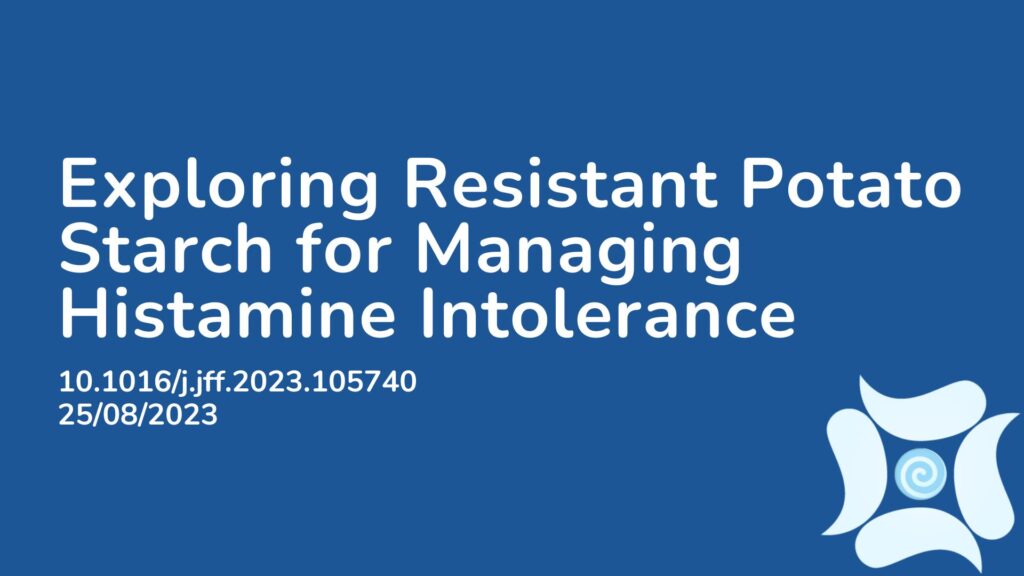Summary:
Histamine intolerance (HIT) is a gastrointestinal disorder caused by excessive histamine levels, often due to impaired diamine oxidase (DAO). Patients with HIT report allergy-like symptoms and gastrointestinal issues such as diarrhea and constipation. In healthy individuals, DAO released reduces histamine production, preventing excessive levels. However, impaired DAO activity can lead to excessive histamine in the gut or circulation, resulting in HIT. HIT can also occur without DAO impairment due to high histamine levels in certain foods. Eliminating high-histamine foods can help manage HIT, but long-term adherence is challenging. Current HIT therapies, including DAO supplementation, are inadequate, and the effect of prebiotics on HIT remains uninvestigated. Dysbiosis, or imbalance in gut microbes, is common in HIT patients. Low doses of resistant potato starch (RPS) have been shown to increase beneficial bacteria and reduce gastrointestinal symptoms, suggesting RPS may offer a new therapeutic avenue for HIT. Because RPS is a type of resistant starch, it has demonstrated various health benefits such as improved glucose and insulin metabolism and reduced gastrointestinal symptoms. This study aimed to expand previous findings on low-dose RPS (3.5 g/day for four weeks) to determine its effect on gut microbiome-related changes in histamine metabolism in healthy adults, compared with a placebo. The results showed that RPS treatment significantly reduced histamine levels. RPS also reduced histamine-secreting bacteria such as Haemophilus and Lactobacillus. Additionally, metabolites associated with intestinal permeability were significantly reduced by RPS treatment. This suggests that the decrease in serum histamine might be linked to improved gut barrier function. These findings highlight the potential benefits of supplementing the diet with RPS.
Abstract:
Histamine from our diet or gut microbes can trigger gastrointestinal disturbances, and resistant potato starch (RPS) has previously been shown to alleviate these symptoms while increasing levels of health-associated bacteria such as Akkermansia through unknown mechanisms. Post hoc exploratory metabolomic analysis of serum amino acid, amine, and carnitine metabolites in participants consuming 3.5 g/day RPS or placebo (n = 48) was performed using liquid chromatography-mass spectrometry to determine whether RPS positively influences histamine metabolism and related parameters. Histamine levels were significantly reduced by RPS treatment, but histamine-degrading enzyme products were unaffected by RPS. RPS also reduced histamine-secreting Haemophilus and Lactobacillus. Further, metabolites associated with intestinal permeability, including 5-hydroxylysine, acetylspermidine, and short- and medium-chain carnitines ratios, were significantly reduced by RPS treatment, suggesting decreased serum histamine might be related to enhanced gut barrier function. These metabolomic findings expand the value of supplementing the diet with RPS.
Article Publication Date: 25/08/2023
DOI: 10.1016/j.jff.2023.105740



